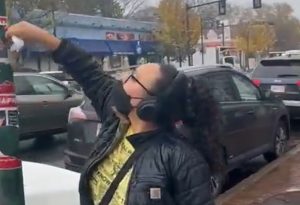A Boston man who was recently removed off a waiting list for a heart transplant because he refused to get vaccinated against COVID-19 has sparked a debate over why healthcare organisations around the country have instituted such restrictions.
DJ Ferguson, 31, was at the top of the transplant list, according to his family, but was pulled off the list at Brigham and Women’s Hospital owing to a hospital policy requiring transplant patients to be vaccinated, according to CBS Boston.
Also read: FDA revokes authorisation for monoclonal antibody treatments for COVID-19
“My son has gone to the edge of death to stick to his guns and he’s been pushed to the limit,” DJ’s father, David Ferguson said. “Because he won’t get the shot, they took him off the list (for) a heart transplant.”
Despite his son’s fragile health, David Ferguson said he strongly disagrees with the hospital’s attitude and is now “aggressively pursuing all options,” including maybe transferring him to a different hospital in the vicinity.
Health care professionals have warned, however, that transplant patients who have not been vaccinated against the coronavirus have a far reduced probability of having a successful procedure or even survival.
Also read: Going to the airport? Domestic passengers can now carry only one handbag
Dr. Arthur Caplan, the head of Medical Ethics at NYU’s Grossman School of Medicine, told Newsweek on Tuesday that vaccination against any disease has long been suggested for patients undergoing transplant surgery, as the procedure renders patients immunocompromised and vulnerable to infection.
“It is recommended that all vaccines be tried in people who are eligible for transplant – flu vaccine, measles, tetanus, etc. The idea behind that is trying to boost your immunity if possible before you get completely immunosuppressed as a result of a transplant,” said Caplan, who also specializes in transplant research.
“Any infection after a transplant could potentially kill you, from athletes foot to COVID-19. I am firmly behind the decision to say that all patients should be vaccinated in order to receive a transplant.”
Also read: Elton John farewell concert postponed after he tests COVID-19 positive
He noted that because transplant patients are at such a high risk of infection, “relatives of patients should be vaccinated too,” as they offer a high danger of spreading the disease.
Caplan also stated that the issue should not be considered as a reason to discriminate against unvaccinated people, but rather as a strategy to ensure that people who need a transplant get the best treatment available.
“It has to do with trying to make sure that very scarce hearts are used in a way that maximizes the chance that recipients live. The political ideology that you are discriminating is getting confused with basic biology,” he said.
According to CBS Boston, Brigham and Women’s Hospital said in a statement this week that their policy is similar to that of many other hospitals across the country.
Also read: Pfizer testing reworked COVID-19 vaccine for omicron to compare it with older jab
“Like many other transplant programs in the United States – the COVID-19 vaccine is one of several vaccines and lifestyle behaviors required for transplant candidates in the Mass General Brigham system in order to create both the best chance for a successful operation and also the patient’s survival after transplantation,” the hospital said.
According to The Guardian, transplant patients who fall sick with the coronavirus have a 20 to 30 percent probability of dying, which is significantly higher than the general population’s 1.6 percent death rate.
Organ transplant recipients who are vaccinated before surgery are 80 percent less likely to become infected with COVID-19 than their unvaccinated counterparts, according to a study published last summer by researchers at the University of California San Diego.






